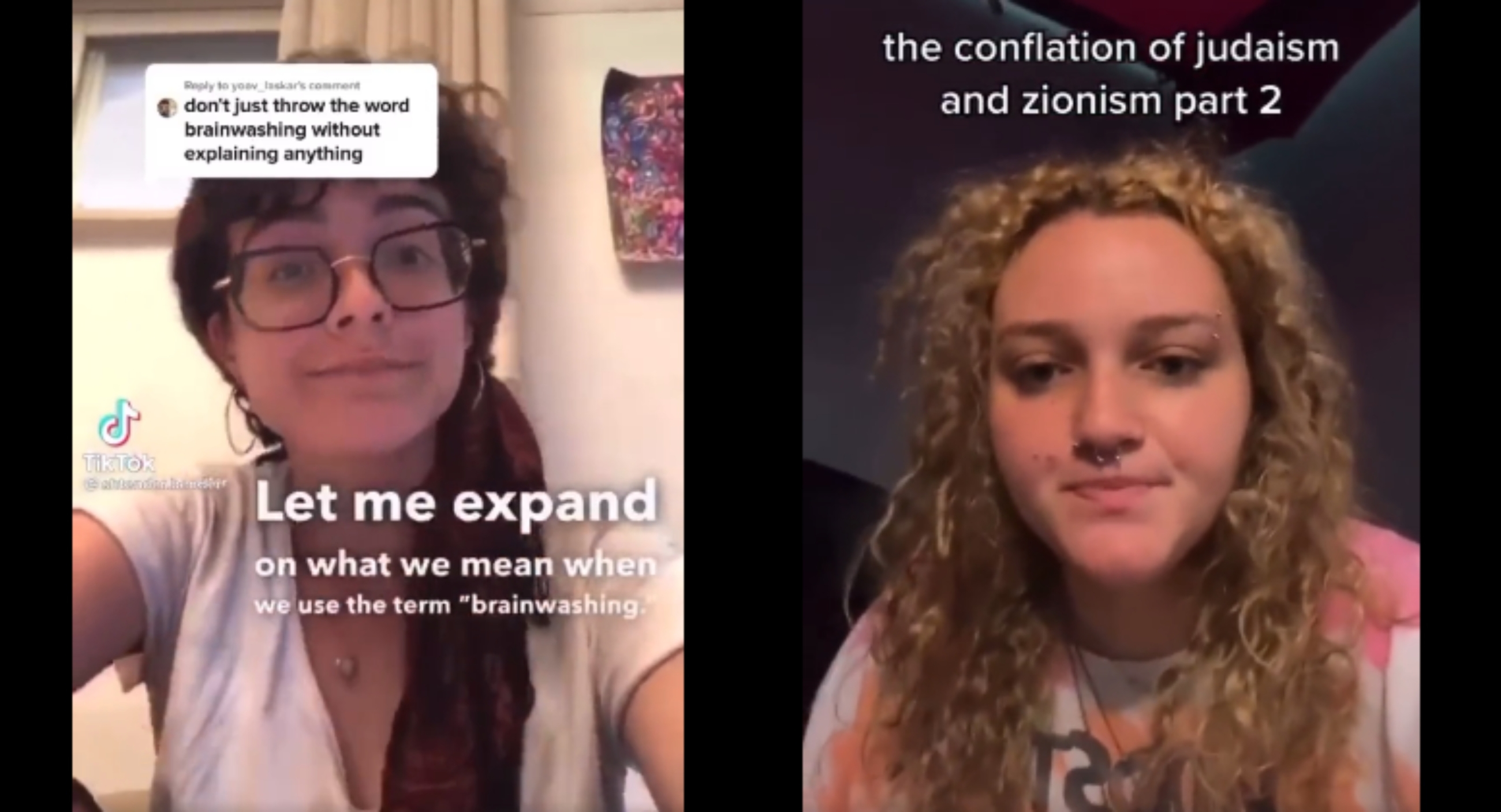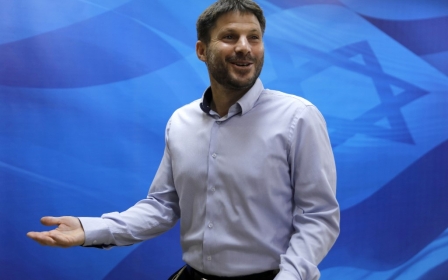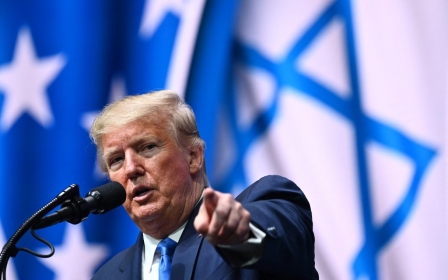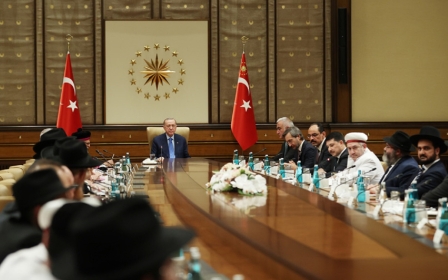Young Jews share experiences of Israel-Palestine ‘brainwashing’ on TikTok

Young Jewish people, mostly based in Israel and the United States, have been sharing videos on social media in which they criticise what they were taught about Israel and Palestine.
“I grew up being told that Palestine was an invented country for an invented people and I shouldn’t use the word,” said Jerusalem-based TikTok users Lexie and Lara, who post as shtender.bender.
“The two books I own more copies of than any other are Myths and Facts and A Case for Israel, because about half a dozen Jewish organisations gave them to me for free.”
They go on to say that their youth group gave frequent training on how to “combat anti-Israel sentiments on campus”, and that they grew up learning that the media reported on Israeli crimes because it “hates Jews and Israel”.
In a separate video, another user states: “You grow up learning that Israel is good, you don’t learn the word Palestine until your late teens.”
“There’s no discussion of the injustices, you only learn about Israel and the IDF and the fun, cultural things in Israel,” she continues.
“Because when you find out about all these injustices - especially when most of them are being said in the name of your religion that you love so much - it’s a fucking gut punch.”
In another video, Los Angeles-raised comedian and social media personality Michael Schirtzer outlines why he believes it’s harmful to associate Jews with the state of Israel.
One Jewish teacher explains how the term Eretz Yisrael (the Holy Land) is “thousands of years old”, and is used in the Torah to describe the land “regardless of who is ruling it”.
“My question for you is: if you believe in the Torah, and if you believe that Hashem [God] is a God of justice, why are you simping for colonialism and apartheid?”
A survey of US Jewish voters taken after Israel's most recent offensive on Gaza last year found that a quarter of respondents agreed that "Israel is an apartheid state", siding with both Human Rights Watch and Amnesty International.
This article is available in French on Middle East Eye French edition.
Middle East Eye propose une couverture et une analyse indépendantes et incomparables du Moyen-Orient, de l’Afrique du Nord et d’autres régions du monde. Pour en savoir plus sur la reprise de ce contenu et les frais qui s’appliquent, veuillez remplir ce formulaire [en anglais]. Pour en savoir plus sur MEE, cliquez ici [en anglais].




